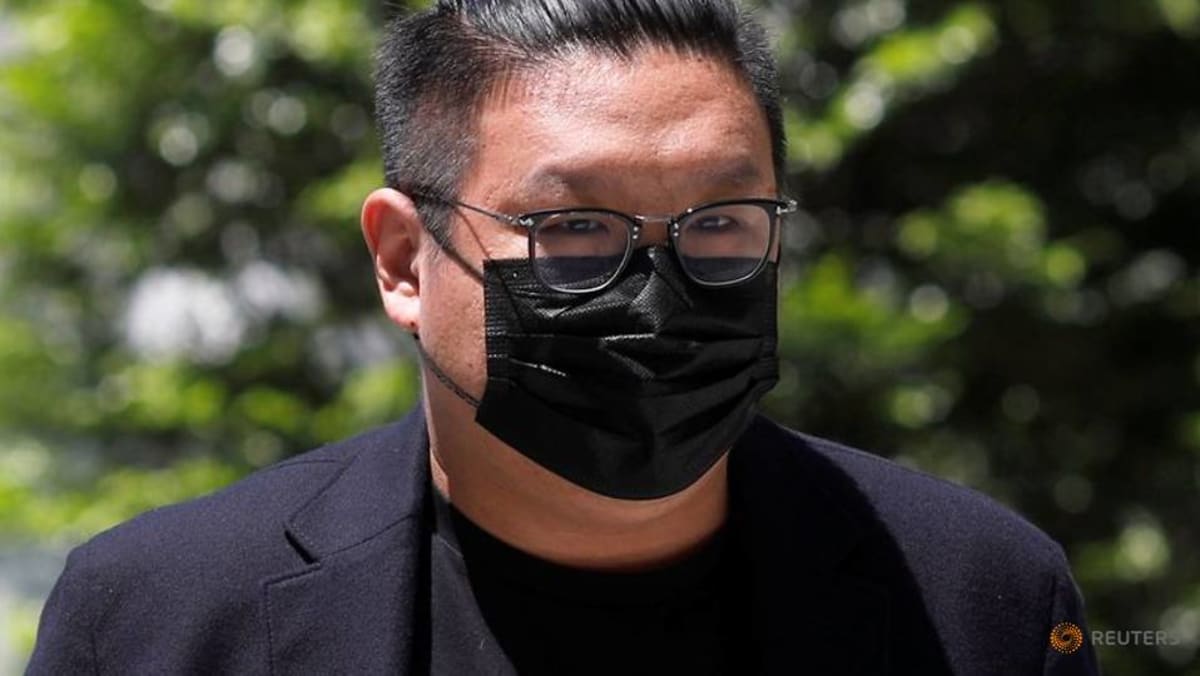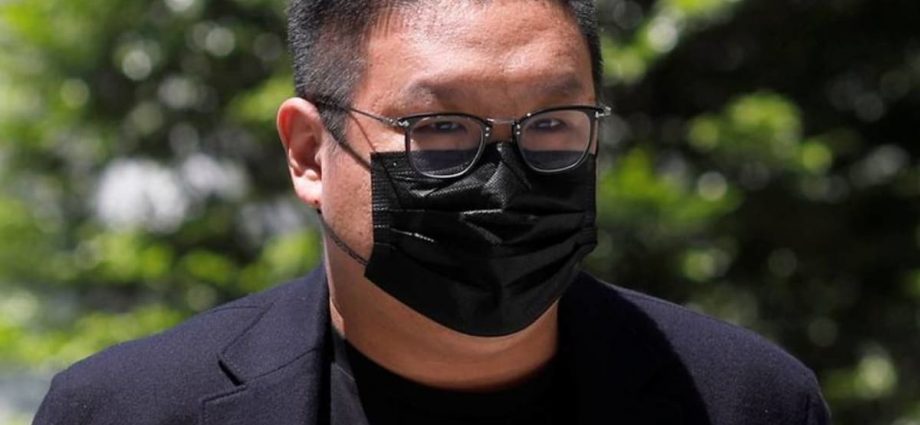
DEFENCE ARGUES FOR BAIL DECREASE
On Thursday, Ng’s lawyers from Dentons Rodyk & Davidson, led by partner Navin Naidu, applied to have the S$6 million bail reduced to S$5 million.
The bail amount had been increased from S$4 million to S$6 million on Jan 19. At that hearing, the prosecution made the case for higher bail after a recent bankruptcy hearing revealed that Ng had another S$15.6 million in assets.
Most of these assets, which include an apartment and a vehicle, are located overseas and are owned or held by other individuals.
Because Ng could not raise the additional bail, he was remanded on Jan 19 and has now been remanded for more than a month. He spent Chinese New Year in remand, said his lawyer.
Mr Naidu raised several arguments for why the bail amount should be reduced so that his client’s bailor – his father – can raise bail and get his son out, true to the principle of presumption of innocence.
New facts showed the effectiveness of electronic tagging, which was introduced in Singapore in 2019. Empirical data shows that e-tagging is 99 per cent effective, said the lawyer.
There is also a material change in circumstances, with Ng claiming in a new affidavit produced for the purpose of the bail review that he cannot directly communicate with the woman overseas who holds or owns his assets.
Mr Naidu said that the prosecution’s initial application to raise the bail amount to S$6 million was based on Ng’s own words in his bankruptcy-related affidavit, so to reject his words now when he says he no longer has access to overseas assets is to mean they accept his words only when it suits their case.
The lawyer, who was formerly a deputy public prosecutor, also said that the judge could tighten the intensity of other conditions along with the proposed S$1 million decrease in bail.
His client agrees to be effectively “under house arrest” with an increased curfew, and is willing to report to the police more often, he said.
PROSECUTOR REBUTTAL
Lead prosecutor Gordon Oh said that despite Ng saying in his latest affidavit that he has not been in direct communications with the woman holding his assets overseas since May 2022, Ng had told the High Court in his bankruptcy hearing later that year that he was reasonably confident of securing about S$50 million of overseas assets.
Mr Oh argued that there were no new facts in the case affecting bail, pointing to the Criminal Procedure Code that said a material change in circumstances or new facts is required.
The defence counsel had pointed to the case of Ewe Pang Kooi, who was granted bail in a similar situation.
Mr Oh said there were differences between the two cases. In Ewe’s case, he had no access to funds, but Ng does.
“We don’t know what’s going to go on after (this). There is certainly a possibility of a movement of funds,” said Mr Oh.
“When talking about bail, we’re talking about risk. We’re not talking about – yes, he will abscond so please increase. We’re talking about the increased prospect of absconding because of all these factors,” he said.
When Judge Tay said e-tagging was not a 100 per cent safeguard against absconding, defence lawyer Mr Naidu agreed but added that even a high bail amount “may not be 100 per cent”.
Mr Naidu said that the prosecution “knew all along” that Ng had money overseas and the court had previously already found that he had enough to live overseas.
The previous bail amount had taken this into account, and just because the value of his assets has increased does not mean his flight risk is increased, said the lawyer.
JUDGE’S DECISION
In his decision, Judge Tay said there seems to be inconsistency in Ng’s affidavits.
“The pessimism expressed by the accused in his bail review affidavit, contrasted with his optimism in his (bankruptcy) affidavit, gives rise to concerns as to what exactly the true state of affairs is,” he said.
He said there were no satisfactory reasons why the defence did not have emails or chat messages in support of the bail review affidavit.
While he said he was grateful for the defence’s arguments on the efficacy of e-tagging, he said there were other considerations at play.
He agreed with the prosecution that there were a few features in Ewe Pang Kooi’s case where he was granted bail that are not present in Ng’s case.
He ordered bail to stand at the three available options – S$6 million by one surety, S$3 million by two or two sureties offering S$4 million and S$2 million each.
At this, Mr Naidu asked for two other variations: S$4.5 million by one bailor and S$1.5 million by a second, as well as S$5 million and S$1 million by two respective bailors.
He said Ng’s father “realistically” can raise S$4.5 million and possibly S$5 million for the bail.
He had previously told the court that Ng’s 72-year-old father, a retiree living on Central Provident Fund payouts, had liquidated all his savings and stock options to raise the previous bail amount of S$4 million for his son.
The prosecution did not object, and Judge Tay granted the application.

